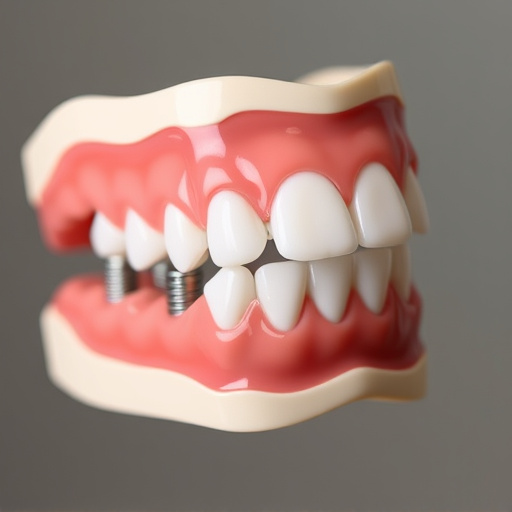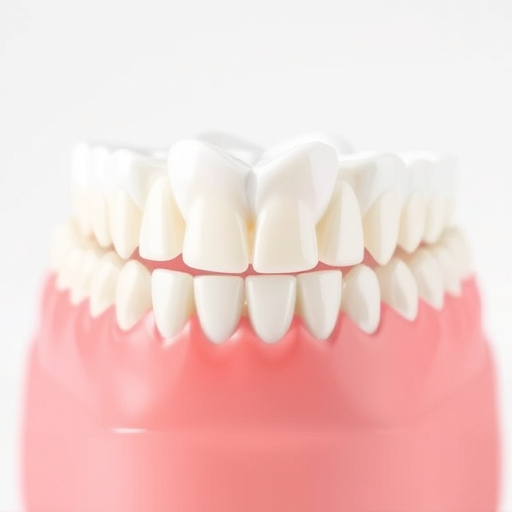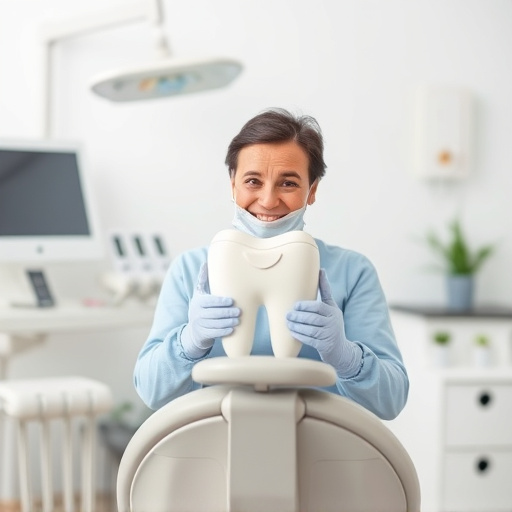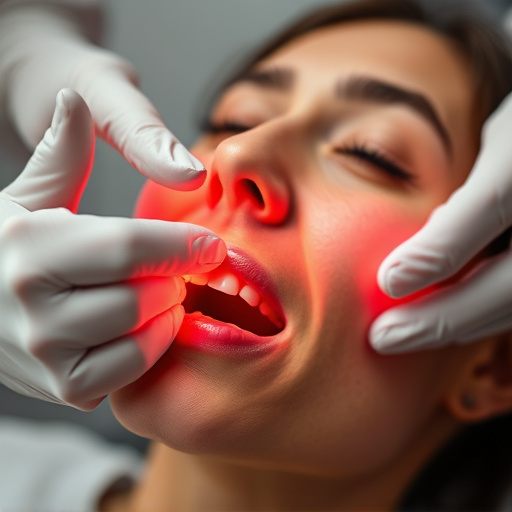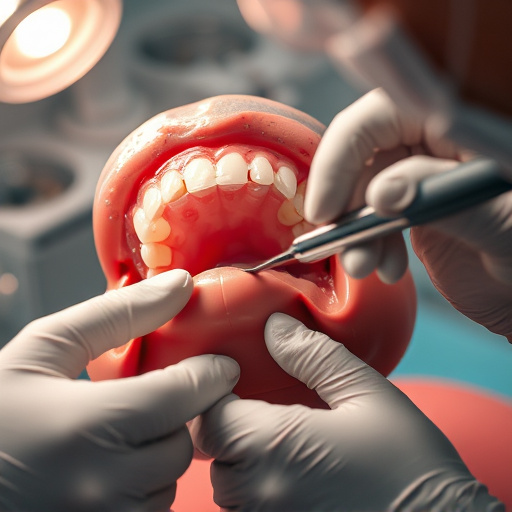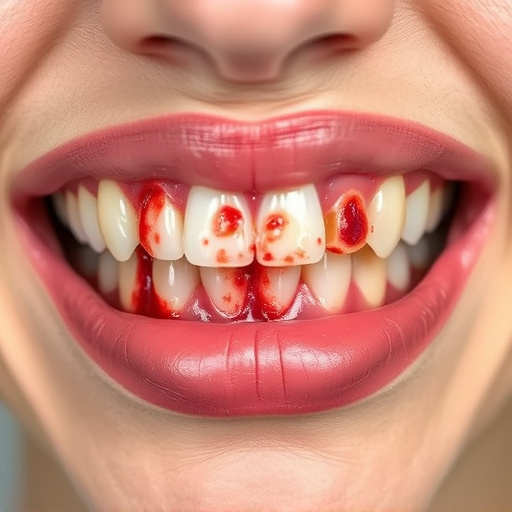Sleep apnea, a common sleep disorder with potential undiagnosed cases, disrupts breathing and sleep cycles. Oral surgery procedures offer lasting solutions for severe cases, targeting structural issues in the mouth and throat. Techniques like dental implants and bonding improve jaw alignment and airflow, providing effective long-term relief compared to general dentistry.
Sleep apnea is a common yet serious sleep disorder affecting millions. Characterized by repeated pauses in breathing during sleep, it can lead to significant health complications. If you’re struggling with this condition, oral surgery procedures may offer a transformative solution. This article delves into understanding sleep apnea and its impact, explores oral surgery options for effective management, and highlights common procedures known for their benefits. Discover how these interventions can enhance your quality of life and promote restful nights.
- Understanding Sleep Apnea and Its Impact
- Exploring Oral Surgery Options for Management
- Common Procedures and Their Benefits
Understanding Sleep Apnea and Its Impact
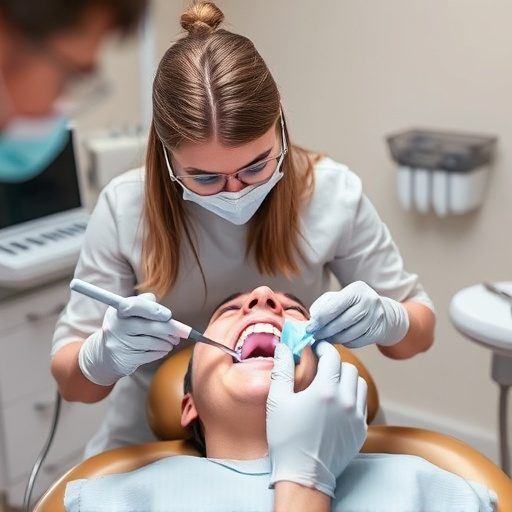
Sleep apnea is a common yet often undiagnosed sleep disorder that can have significant impacts on overall health and daily life. It occurs when the upper airway is obstructed during sleep, leading to pauses in breathing or shallow breaths. These interruptions disrupt the natural sleep cycle, causing individuals to experience excessive daytime sleepiness, fatigue, and potential long-term health complications such as cardiovascular diseases and cognitive impairment.
The condition can be categorized into three types: obstructive, central, and mixed apnea. Obstructive sleep apnea (OSA) is the most prevalent, typically resulting from the collapse of soft tissue in the throat during rest. OSA can be managed through lifestyle changes like weight loss, but for many, oral surgery procedures offer a more permanent solution. These interventions aim to improve airflow by adjusting the anatomical structures of the mouth and throat, providing relief from symptoms and enhancing overall sleep quality.
Exploring Oral Surgery Options for Management

Exploring Oral Surgery Options for Management
If conservative treatments like continuous positive airway pressure (CPAP) and lifestyle changes haven’t provided relief from sleep apnea, it may be time to consider oral surgery procedures. These advanced interventions offer a more tailored approach to addressing the underlying causes of sleep apnea, such as a narrow upper airway or structural abnormalities in the jaw and mouth. Oral surgeons are specialists trained to perform various procedures that can help improve breathing during sleep.
One common oral surgery procedure for sleep apnea is maxillofacial surgery, which involves adjusting the position of the jaw to create more space in the airway. Other options include tongue base reduction surgeries, where excess tissue blocking the airway is removed, and dental implants or mouth guards designed to keep the jaw in a specific position during sleep. Unlike general dentistry or preventive dentistry measures like dental cleanings, oral surgery procedures aim to correct physical obstructions, providing long-term solutions for managing sleep apnea symptoms.
Common Procedures and Their Benefits

Oral surgery procedures have emerged as effective solutions for managing sleep apnea, a common sleep disorder characterized by pauses in breathing during sleep. Among the most frequently performed oral surgery procedures are dental implants, which serve as anchors for dentures or bridges, promoting better alignment and support of the jaw. This not only enhances the aesthetic appeal but also significantly improves airflow, alleviating symptoms of sleep apnea.
Additionally, restorative dentistry techniques such as dental bonding can play a complementary role in addressing sleep apnea. By repairing or reinforcing teeth, these procedures ensure a stable oral structure that supports proper breathing. Dental bonding, for instance, involves applying a tooth-colored resin to restore damaged teeth, enhancing the patient’s bite and improving overall jaw function. Integrating these oral surgery procedures into comprehensive treatment plans can lead to substantial improvements in sleep quality and overall well-being for individuals suffering from sleep apnea.
Oral surgery procedures offer a promising path for managing sleep apnea, addressing the root causes often overlooked by traditional treatments. By exploring options like mandibular advancement devices, dental implants, or surgical correction of structural abnormalities, individuals can experience improved breathing and overall health. These advanced oral surgery techniques not only enhance quality of life but also provide long-lasting solutions for those struggling with this disruptive sleep condition.






